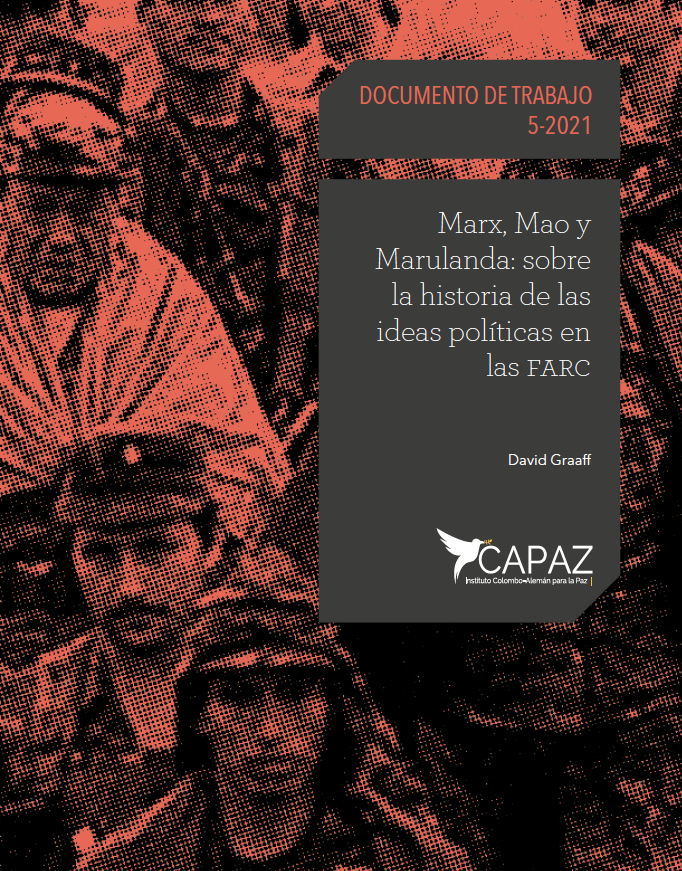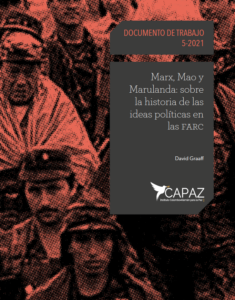
CAPAZ Working Paper (5-2021): “Marx, Mao, and Marulanda: on the history of political ideas in the FARC”

“Marx, Mao, and Marulanda: on the history of political ideas in the FARC” – Bogotá, Colombia, June 2021
Author/researcher:
David Graaff. With an MA in Latin American Regional Studies from the University of Cologne and a PhD candidate in Latin American History at the Katholische Universität Eichstätt-Ingolstadt, both in Germany, David Graaff currently teaches at various institutions and works as a journalist and translator. Contact: dcgraff@unal.edu.co
Abstract:
This Working Paper assesses how political ideologies have shaped the Revolutionary Armed Forces of Colombia (FARC), one of the largest revolutionary guerrillas of the 20th century, and how they have influenced its operations for over five decades. It also analyses how the epistemology, worldviews and concepts of revolution in Marxism, Leninism, and Maoism were received and interpreted by the Colombian Communist Party (PCC) and the FARC. It goes on to describe how these ideological constructions, together with intellectual productions typical of Colombian communism —a particular historicism and a Farian interpretation of Simón Bolívar— have been preserved, changed and redefined in the course of fifty years of armed struggle, leading to the Havana dialogues between 2012 and 2016, the Final Agreement, and the surrender of weapons and the FARC’s conversion into a —now seriously fragmented— legal political actor.
Keywords Peace agreement; Revolutionary Armed Forces of Colombia; Guerrilla; Ideology; Marxism; Revolutionary Armed Forces of Colombia.
Read the CAPAZ Working Paper 5-2021 (.pdf, in Spanish)
(NW: Claudia Maya. Inglés: Tiziana Laudato)



